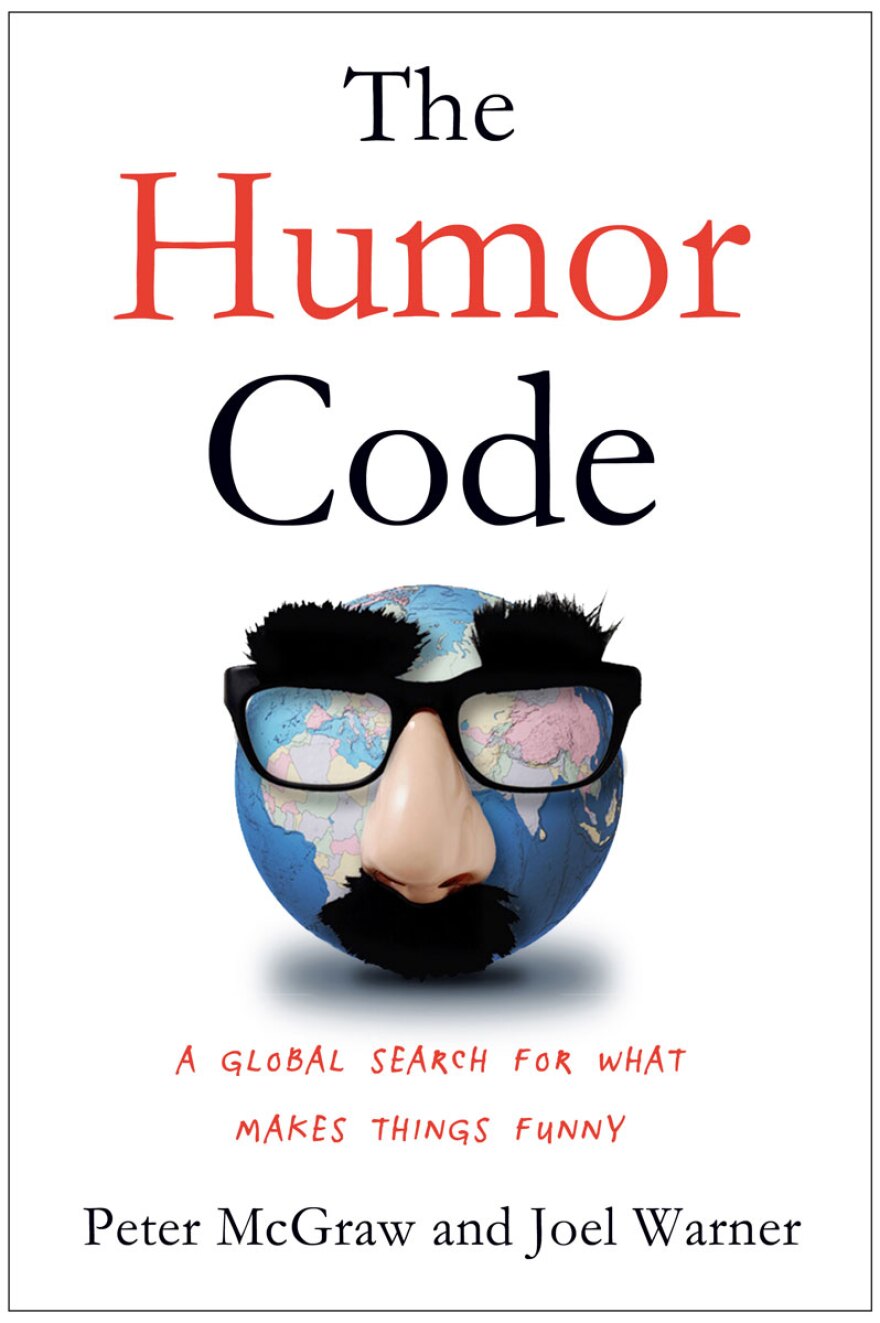All of us know instinctively when something’s funny. But have you ever stopped to ask yourself why you laugh at the jokes you do?
University of Colorado at Boulder professor Peter McGraw has devised a universal theory in an attempt to explain this. Through experiments in his Humor Research Lab at CU he’s developed the theory of benign violation. It’s the idea that we laugh when something seems wrong, but is simultaneously acceptable and safe.
http://youtu.be/ysSgG5V-R3U
In a book that’s part travelogue, part social science experiment, McGraw teamed up with Denver journalist Joel Warner to test the benign violation theory across the globe traveling to Tanzania, Palestine, Japan, New York, Scandinavia and the Amazon.
Warner says the most difficult leg of the trip came when traveling to Japan, which has a vibrant academic humor scene. The duo took a 20-hour trip and rushed off the plane to catch a two-hour “once in a lifetime” rakugo performance. The traditional form of comedic storytelling was entirely in Japanese with no English.

Translation: total snoozefest.
“We were feeling really bad about this until we looked around the auditorium and the mostly gray haired audience was falling asleep, too,” said Warner, who describes the performance in the book as “torture.”
One of the most interesting stops in the book comes when Warner and McGraw visit comedy clubs in Los Angeles. They wanted to understand whether humor is ingrained in comedians, or if it’s something that’s developed through practice and instruction.
“One thing I will say is that even though our book is called The Humor Code, there is no one simple way to immediately create amazing jokes,” said Warner. “It’s hard work to create things that are funny to not just your friends, not just a stand-up club audience, but possibly thousands of people. That takes time.”
Interview Highlights With Joel Warner:
Can a comedian’s stage act be distilled into a formula or science?
“Some of [the comedians], including Louis C.K., said ‘I just don’t think it’s that simple. There’s no scientific theory behind this.’ But then, for example, we were sitting in a comedy club and as a surprise guest Aziz Ansari comes onstage and starts working on material. He’s working off a notepad, and he says to the audience, ‘Oh come on, I tried this joke the other night on this audience and it was great. It really is funny.’ And that made us realize that what these comedians are doing, whether they know it or not, is science.”
What role does tension play in humor?
“That’s one of my biggest takeaways from this book which is the idea of tension in humor — the idea that whether you believe the benign violation theory is the end-all-be-all of humor theories, it does help illustrate that the best comedy is a mixture of pleasure and pain. And the best comedians are the ones who take that line and almost become like a tightrope walker. It’s a virtuoso act where they push into the boundary of pain just a little bit, just enough to create that humor to push the boundaries of what’s acceptable, but not too far.”
Can humor go too far?
“In 2005, a local Danish newspaper published a dozen cartoons under the name ‘The face of Muhammad,’ several of which depicted the Prophet. This created international controversy. Several of these comedians now live under 24 hour security because there have been multiple threats on their lives. That to us really demonstrated that jokes can be really dangerous. You have to think really hard about who the target is of your joke — it really is a target. And you have to think about the audience. For example, these cartoons were meant for a local Danish audience. But because of the Internet these days — and the global news distribution — these things went to an audience far beyond who they were originally designed for.”
The book The Humor Code: A Global Search For What Makes Things Funny is on sale now.







